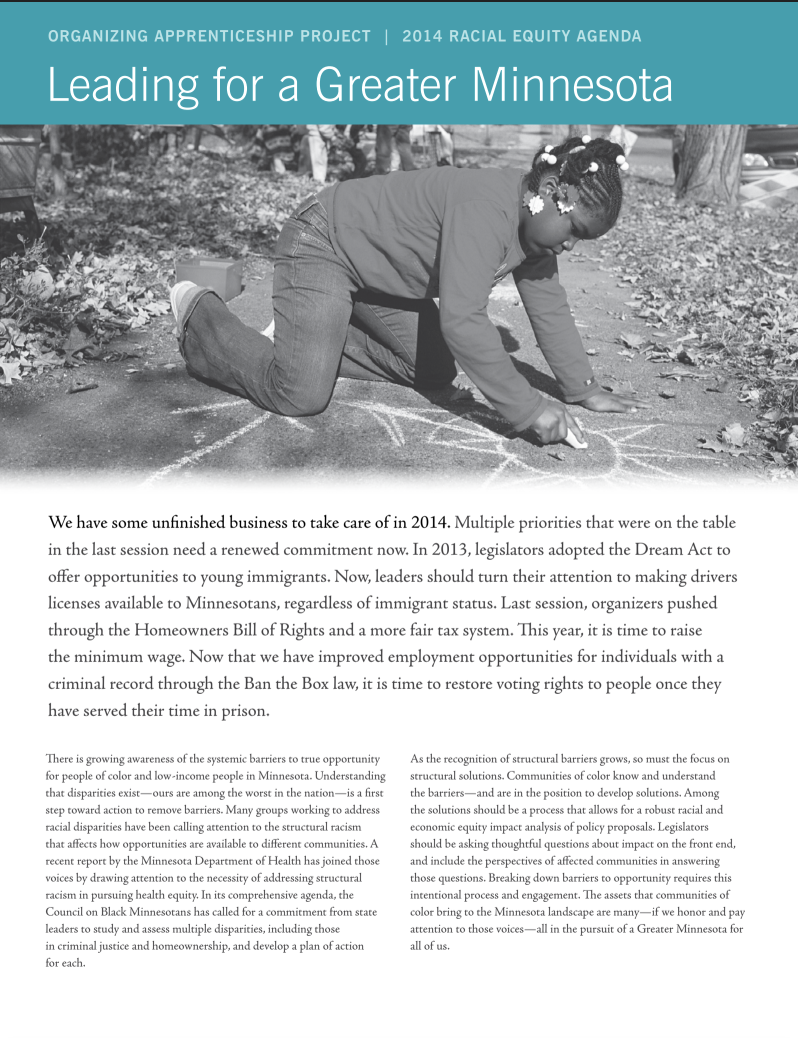Voices for Racial Justice was founded in 1993 as the Organizing Apprenticeship Project (OAP). Our work responded to the need for local, Minnesota-based community organizing training, pairing emergent organizers with mentors across the state.
As our program continued, our training cohorts were increasingly attended by primarily Black, brown, and Indigenous organizers. Despite our success at growing local networks of grassroots organizers, BIPOC participants experienced the harms and limitations of organizing for racial and economic justice in a field that reproduces oppressive cultures and practices.
In 2006, we began explicitly centering racial justice in our work, and in 2014, we became Voices for Racial Justice (VRJ). This shift was marked by intentionally resourcing BIPOC organizers and prioritizing initiatives that directly impacted racial justice movements.
Since our founding, we have trained over 400 community organizers. VRJ alumni have gone on to hold elected office, start social justice organizations, and take on courageous leadership roles to champion change for communities of color across Minnesota.
Voices for Racial Justice was founded in 1993 as the Organizing Apprenticeship Project.
In 2006, we began explicitly centering racial justice in our work, and in 2014, we became Voices for Racial Justice (VRJ).
We equip passionate people with the skills and resources they need to lead change in their communities.
In 2014, we began the BRIDGE (Building Righteousness Integrity Dignity Goals Evolution) program in collaboration with Kevin Reese. The program has now evolved into Until We Are All Free.
Since 1993, we’ve trained over 400 community organizers.
Over 80 of them are alumni of our Education Equity Parent Fellowship.

We have been advocating for racial justice policymaking since 2006.
From 2006 - 2016, we released annual Legislative Report Cards on Racial Equity and Racial Equity Agendas.
In 2017, we realized that “...after over a decade of grading legislators, we found that while the number of racial equity champions (legislators who receive a grade of A or B in the Legislative Report Card on Racial Equity) had increased at the Legislature, racial equity in Minnesota had not.”
While we still advocate for racially just governance, we also recognize that we cannot rely solely on our elected officials to achieve racial justice. In recognition of that, we imagined reclaiming our power, and centering BIPOC communities by turning the focus of our work towards the community organizers and advocates going toe to toe with white supremacy culture in the halls of power.
Our Centering Community in Policymaking Framework has become a go-to tool for progressive advocacy organizations and elected officials championing racial equity in policymaking.






















